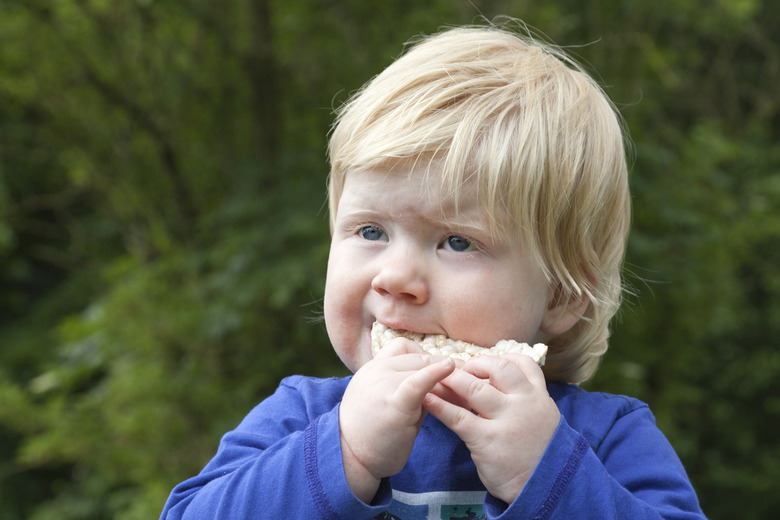Most Gluten-Free Snacks For Kids Are Unhealthy, Study Says
If you're choosing snacks for your kids, you might be more inclined to buy a snack that's gluten-free. If it's gluten-free, it must be healthier, right? But according to a new study published in the journal Pediatrics, gluten-free snacks for kids might not be any healthier than their glutenous counterparts.
The researchers looked at the sugar, fat, and sodium content of 347 snacks marketed towards children. Some of the snacks were specifically advertised as "gluten-free," while others were not. The study excluded "junk foods" such as candy and potato chips.
They used the Pan American Health Organization (PAHO) Nutrient Profile Model to rate the healthfulness of each snack. The PAHO model rates foods based on factors such as the amount of sugar, salt, total fat, saturated fat, and trans fat.
Eighty-eight percent of gluten-free snacks were rated as having poor nutritional quality. Of the snacks that did not make the "gluten-free" claim, 97 percent had poor nutritional quality.
In other words, just because a snack is marketed as gluten-free doesn't guarantee it's a healthier choice.
According to registered dietitian and nutritionist Keri Gans, the idea that gluten-free eating is healthier for children is somewhat misguided.
"The only reason to choose a gluten-free snack is if your child has been diagnosed with either celiac or a gluten intolerance," Gans told The Daily Meal. "A lot of parents these days are anti-gluten for reasons that either aren't based on any concrete evidence or are using themselves as a guide." Parents who feel better without eating gluten assume that their child will feel the same — but that's not necessarily true.
"Just because they feel better without gluten doesn't mean it will make any difference for their child," Gans explained. "Unless that child also has a gluten intolerance."
One interesting aspect noted in the study was that gluten-free snacks often had excessive amounts of sugar. Of the 66 products labeled as gluten-free that were researched, 80 percent had high sugar levels. In a food with high sugar levels, at least 10 percent of the calories come from sugar.
Rather than a gluten-free label, parents can make healthier choices at the grocery store by looking at nutrition labels and reading ingredients, Gans advised.
"'Gluten-free' has this halo effect," she said. "If you want to choose something gluten-free, there are a lot of really great gluten-free options! You just need to dive deeper, because a lot of gluten-free snacks have lots of added sugar and sodium."
In fact, many healthy snacks that adults and children can eat are gluten-free by nature, even if they aren't necessarily marketed with a gluten-free label.
Gans recommends Kind bars for a packaged snack option, noting that both the Kind Kids bars and the Pressed by Kind bars are nutrient-dense. Other healthy snacks that are gluten-free are yogurt, which provides calcium that a growing child needs. Additionally, Gans says she would give a child snack options such as almonds or peanuts, string cheese, or fresh fruit.
Lots of healthy snacks are gluten-free — but, as Gans and this study both point out, a gluten-free label doesn't make a snack healthy. That's one of the many myths about gluten people should probably stop believing.

